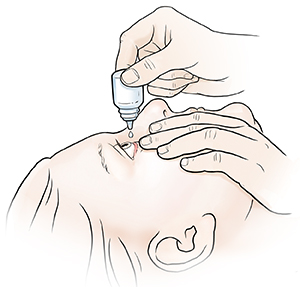After surgery, you’ll rest in a recovery area for about 30 minutes. Even though you may feel fine, you should take it easy. Your health care provider will let you know what you should and shouldn’t do after you get home. You may need to wear eye protection the first day. Also remember to use any eye drops or take any medicine your provider prescribes.
Back at home
Spend your first day relaxing at home. Follow these guidelines:
-
Don't rub your eye.
-
Don't lift anything that makes you strain.
-
Don't drink alcohol within the first
24 hours. -
Don't bend from the waist to pick up objects.
It’s normal for your eye to be bruised or bloodshot at first. You may also feel itching or mild discomfort. You may have some short-term (temporary) fluid discharge. These won’t last long.
Getting back in action
You may be able to get back to much of your routine on the first day. But with some tasks, your health care provider may ask you to wait. Always follow your provider's recommendations.
Here are some additional guidelines:
-
You may have to use eye drops after surgery. Always wash your hands before and after using eye drops. Be sure to follow your provider's directions for using these drops.
-
Don't get soap or water directly in the eye. Don't rub or press on your eye.
-
Your ophthalmologist may ask you to wear eyeglasses or a shield to protect your eye.
-
You may need to wear a protective eye shield for a certain period of time when you sleep.
-
Your ophthalmologist will talk with you about how active you can be soon after surgery. They will tell you when you can safely exercise, drive, or do other activities.
-
Remember, after cataract surgery, you will still need regular eye and vision exams.
When to contact your doctor
Contact your health care provider if:
-
Your pain is not relieved by over-the-counter medicine.
-
You have nausea or vomiting.
-
Your vision suddenly becomes worse.
-
Your symptoms get worse, or you have new symptoms.
Featured in


